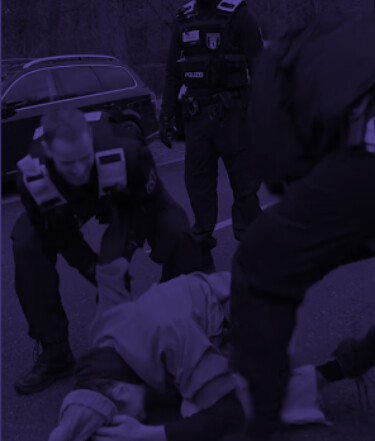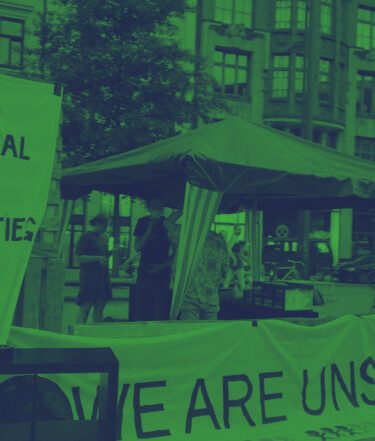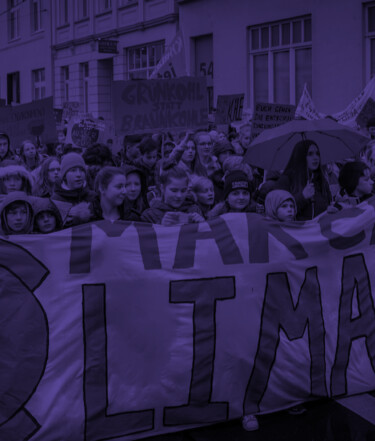
Ban on left-wing activist leaving the country is unlawful
Together with an activist, we go to court against a groundless ban on leaving the country. The left activist wanted to take part in the anti-fascist protest against a right-wing extremist march in Bulgaria. He was banned from leaving the country by the federal police to protect the "reputation of the Federal Republic of Germany" on the basis of the passport law. This is a massive interference with the freedom of assembly.
In February 2023, the plaintiff and Federal Chair of the VVN-BdA Florian Gutsche wanted to travel to Sofia to take part in the protest against the annual fascist "Lukov March". At Berlin airport, the federal police prevented that by banning him from leaving the country for three days. The reason given was that the plaintiff's involvement in violent riots on the fringes of the protest could not be "ruled out". However, there were no concrete indications of danger.
Freedom of assembly is a fundamental right for democracy and also protects participation in protests abroad. All people in Europe must be allowed to participate in transnational protests. Clarification of the fundamental rights requirements for bans on leaving the country to prevent people from participating in protests is overdue.
THE ELFES HERITAGE IN TODAY'S WORLD
In the late 1950s, the Federal Constitutional Court handed down the so-called Elfes ruling. The ruling is considered a fundamental decision on general freedom of action, which - according to the court - also protected leaving the federal territory. The regulation in the passport law was deemed to be in conformity with the constitution and the application to the specific case of politician Wilhelm Elfes was not objected to either. The court thus confirmed the passport denial on the grounds that Elfes endangered the "interests of the Federal Republic".
The political background for the public authority to prohibit the renewal of his passport on the basis of the Passport Act is decisive. Today, the decision can no longer be tenable. Wilhelm Elfes, a politician with pacifist ideas, wanted to take part in an international (communist-influenced) peace congress. Elfes had already attracted attention for his critical opinion on the policies of the German government, especially on defence policy and the question of reunification. His pacifist activities contradicted German domestic and foreign policy along the lines of clear friend-foe thinking at the time of the Cold War.
From today's perspective, it is clear that the Elfes legacy cannot fully extend into the present. The Basic Law guarantees free development of the personality, free expression of opinion, free movement - and also free assembly. People in Europe are entitled to these freedoms and they must be included before any encroachment. Vague formulations such as "other significant concerns" cannot allow far-reaching restrictions on fundamental rights. The "reputation of the Federal Republic" is not endangered if the state does nothing other than respect the freedom of citizens to leave the country.
BANS ON LEAVING THE COUNTRY ONLY IN EXCEPTIONAL CASES
Participation in protests abroad may only be prevented by a ban on leaving the country in exceptional cases. What is required is concrete evidence of serious criminal offences that the person leaving the country will commit abroad.
Following an initiative in the German Bundestag Committee on Internal Affairs by means of a motion for a resolution, the passport administration regulation was amended in 2024. The aim is to prevent participation in "extremist" events altogether.
The draft bill to restructure the Federal Police Act also contains problematic tightenings: Bans on leaving the country are to be enforced with reporting requirements, alerts and detentions.



